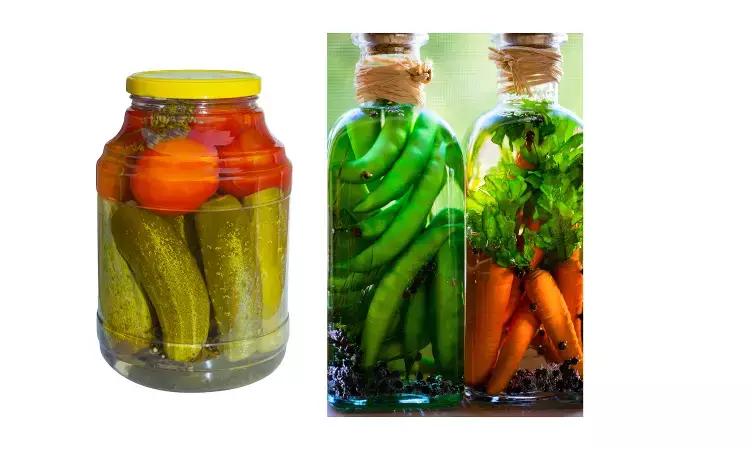- Home
- Medical news & Guidelines
- Anesthesiology
- Cardiology and CTVS
- Critical Care
- Dentistry
- Dermatology
- Diabetes and Endocrinology
- ENT
- Gastroenterology
- Medicine
- Nephrology
- Neurology
- Obstretics-Gynaecology
- Oncology
- Ophthalmology
- Orthopaedics
- Pediatrics-Neonatology
- Psychiatry
- Pulmonology
- Radiology
- Surgery
- Urology
- Laboratory Medicine
- Diet
- Nursing
- Paramedical
- Physiotherapy
- Health news
- Fact Check
- Bone Health Fact Check
- Brain Health Fact Check
- Cancer Related Fact Check
- Child Care Fact Check
- Dental and oral health fact check
- Diabetes and metabolic health fact check
- Diet and Nutrition Fact Check
- Eye and ENT Care Fact Check
- Fitness fact check
- Gut health fact check
- Heart health fact check
- Kidney health fact check
- Medical education fact check
- Men's health fact check
- Respiratory fact check
- Skin and hair care fact check
- Vaccine and Immunization fact check
- Women's health fact check
- AYUSH
- State News
- Andaman and Nicobar Islands
- Andhra Pradesh
- Arunachal Pradesh
- Assam
- Bihar
- Chandigarh
- Chattisgarh
- Dadra and Nagar Haveli
- Daman and Diu
- Delhi
- Goa
- Gujarat
- Haryana
- Himachal Pradesh
- Jammu & Kashmir
- Jharkhand
- Karnataka
- Kerala
- Ladakh
- Lakshadweep
- Madhya Pradesh
- Maharashtra
- Manipur
- Meghalaya
- Mizoram
- Nagaland
- Odisha
- Puducherry
- Punjab
- Rajasthan
- Sikkim
- Tamil Nadu
- Telangana
- Tripura
- Uttar Pradesh
- Uttrakhand
- West Bengal
- Medical Education
- Industry
Consumption of preserved vegetables tied to higher risk of colorectal cancer: Study

China: A cross-sectional study by Fei Wu and the team revealed that increased preserved vegetable consumption was associated with a higher prevalence of colorectal polyps in the Chinese population with a high risk of colorectal cancer (CRC). The use of fresh vegetables instead of preserved ones might be beneficial to lower prevalent colorectal polyps and the risk of CRC. The findings of the study are published in the European Journal of Nutrition.
Colorectal cancer is the third most commonly occurring cancer in men and the second most commonly occurring cancer in women. Over 1.8 million new cases in 2018 were found. Individuals who consume very low amounts of fruit and vegetables are said to have the greatest risk of colorectal cancer. The risk of CRC and the relationship between preserved vegetable consumption and colorectal polyps is unknown.
The objective of the study was to evaluate the association of preserved vegetable intake with the prevalence of colorectal polyps with the consideration of subsites, sizes, and multiplicity of polyps.
The study was a cross-sectional data study of 40-80 years Chinese at a high risk of CRC from the Lanxi Pre-colorectal Cancer Cohort (LP3C) baseline survey, which was conducted between March 2018 and December 2019. Dietary information was obtained from a validated food frequency questionnaire. Multivariate logistic regression was employed to estimate the odds ratios (ORs) and 95% confidence intervals (CIs) of preserved vegetable consumption and the prevalence of colorectal polyps.
•A total of 6783 eligible participants in the 2018-2019 survey of LP3C, 2064 prevalent colorectal polyp cases were identified.
The results of the study were:
• In the multivariable-adjusted model preserved vegetable consumption was positively associated with the prevalence of colorectal polyps (OR for fourth vs. the a first quartile: 1.18).
• The similar association was also detected for small polyps [ORQ4 vs Q1: 1.17]. A similar trend was detected for multiple polyps [OR Q4 vs Q1:1.27], proximal colon polyps [ORQ4 vs Q1: 1.12], and single polyp [ORQ4 vs Q1: 1.15].
• No significant association was observed for distal colon [ORQ4 vs Q1: 1.19]. Replacing one serving per day of preserved vegetables with fresh vegetables was related to 20%, 23%, and 37% lower prevalence of overall, small, and multiple polyps, respectively.
Wu and the team concluded that "Preserved vegetable consumption was associated with a higher prevalence of colorectal polyps in a Chinese population at a high risk of CRC. Replacing preserved vegetables with fresh vegetables may be conducive to lower prevalent colorectal polyps."
Reference: doi: 10.1007/s00394-021-02719-5.
Medical Dialogues consists of a team of passionate medical/scientific writers, led by doctors and healthcare researchers. Our team efforts to bring you updated and timely news about the important happenings of the medical and healthcare sector. Our editorial team can be reached at editorial@medicaldialogues.in.
Dr Kamal Kant Kohli-MBBS, DTCD- a chest specialist with more than 30 years of practice and a flair for writing clinical articles, Dr Kamal Kant Kohli joined Medical Dialogues as a Chief Editor of Medical News. Besides writing articles, as an editor, he proofreads and verifies all the medical content published on Medical Dialogues including those coming from journals, studies,medical conferences,guidelines etc. Email: drkohli@medicaldialogues.in. Contact no. 011-43720751


